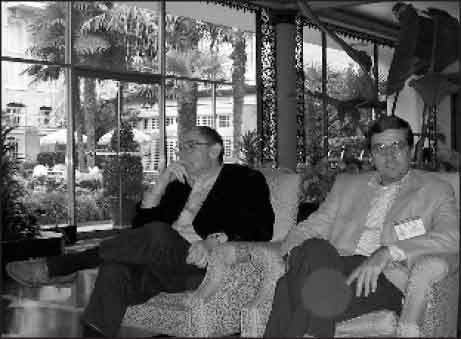It was about 1969. I had published a few small pieces in Modern Age and National Review. I remember well Sam Francis calling me out of the blue, flattering me as “the best-known conservative writer” on campus, and urging me to attend the discussion group of which he was the spearhead. I had a family, a full-time job, and a full graduate course load, and I was not eager for any new activities. However, I joined. It was one of the decisive events of my life, the germinating point of indispensable intellectual inspiration and friendships.
Sam was greatly learned in many aspects of Western culture, but his prime study, from the beginning, was Power. History shows beyond quibble that Power makes its appearance wherever numbers of men gather, which, as social animals, they invariably do. Given that truth, we can observe everlastingly repeated two motives for the study of Power. The most common motive, throughout the life of mankind on this planet, has been how to acquire and use it for domination. There is a Will to Power, which is another way of describing an impulse to satisfy vanity, greed, and lust at the expense of others.
History is replete with examples, the various heinous tyrants of the last century among the worst. Another prime exhibit is the neocon armchair warlords who presently exercise much of the Power of the United States. As with these intriguers, there is always deception and manipulation in the pursuit of Power. Its devotees learn quickly that the general run of us lack a position from which we can discern what is really going on. Power often comes gloriously bedizened, with a winning smile and sweet words of benevolence in pursuit of social utility and justice.
Sam Francis, like the Founding Fathers, belonged to the second class of students of Power. Power may be a social inevitability, even a necessity in a dangerous world. It is also the enemy of liberty and a predator of the spirit and substance of natural society. We study Power to know how to keep the beast hedged about, to make use of it without its making more than necessary use of us. The hedges were what the Founding Fathers meant by “constitution.” It was important to keep Power divisible—which is what the Founders meant by “government of the people”—because Power is always stealing from the many to the few.
How can we tell the difference between the two types of students of Power? By their point of reference. For those who want to restrain Power within decent limits, the point of reference is the living reality of Americans, their well-being and the survival of the culture that defines us and unites our past, present, and future. Everything that Sam wrote was a defense of the living reality of America.
What is the point of reference of the neocons? Lincoln made Power—government—antecedent in value to constitutional restraints and the will of the people. He justified it in persuasive rhetoric that combined the ideals of Puritans and German 48’ers—his principal supporters and both rationalizers of an intense Will to Power—into a pseudotheology of God = America = Government of, by, and for the People. This rhetoric, down to the present moment, has had an irresistible appeal to large numbers of Americans and has been one of the most successful covers ever designed to hide the will to dominate. Its point of reference is not the living reality of America but a fantasy of a mission to bring “democracy” to the world. In this fantasy, the real America is only raw material, not an end in herself.
The fantasy dominates, and its propagators fill the air with it from the most respectable seats of authority. It is a sad truth that intrigue and impudence often carry the day against intelligence and integrity. The great tradition in which Sam Francis was an important thinker is a minority one in our country, but it has never entirely died away. Further, we can say that our late friend always sounded a strong and clear voice of learning and realism amidst the fatuous and shallow prattle that dominates our national discourse. He was an immensely gifted writer who raised the syndicated column to a height of seriousness and intelligence, integrity and good fun, that has not been equaled in a long time—at least since Mencken—and is not likely to be reached again.

Leave a Reply